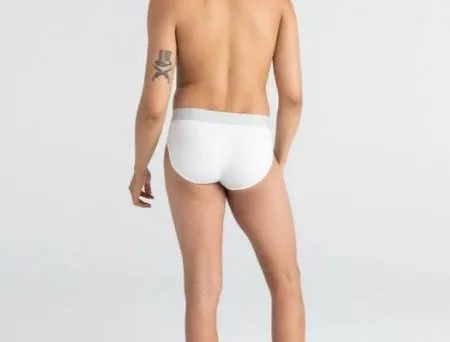Polyester is one of the most commonly used fabrics globally as it is cheap and will not wrinkle easily. According to Robin Report, nearly 60% of the garments sold in the USA every year are made from polyester. So I bet if you were to pick three clothes from your closet randomly, one of the clothes has to be made from polyester. It is thus acceptable for you to have different questions about polyester.
While other fabrics such as cotton, rayon, chambray, and linen are perfect for summer, they have better properties than polyester; as synthetic fiber, polyester is a dependable moisture-wicking fabric. Therefore, when polyester is blended with other fabrics, it can be a perfect choice for summer since it is breathable, dries quickly, and is lightweight.
In this article, I have discussed the breathability aspect of polyester. Make sure you read the article in full, and you will better understand polyester.

Is Polyester Good For Summer?
To determine whether polyester is suitable for summer, you have to understand the different properties of an ideal summer fabric. We spend more time outdoors in summer as the temperatures are hot. Thus, summer fabric has to be suitable for hot temperatures.
One of the characteristics of summer clothing is that the clothes have to be made with lightweight fabrics. Moreover, as temperatures are usually high, we have to wear light clothing that is not too tight. Therefore, the clothes should not stick to our bodies and trap heat and sweat. In addition, light clothes will facilitate air circulation, thus making it easy to cope with the high summer temperatures.
Another characteristic that summer clothing should have is that the clothes should provide sun protection and at the same time be light in color. Increased exposure to the sun can result in skin cancer and hasten the aging process. On the other hand, light colors reflect instead of absorb heat. The light-colored clothes thus ensure that our bodies are not exposed to a lot of heat. Therefore, to reduce the risk of skin cancer, summer clothing should be light in color and offer protection from sunlight.
The third most crucial property of summer clothing is that the fabric has to be breathable. There are days when it’s humid in summer, and temperatures are also high. At such times, highly breathable fabrics are essential since these fabrics soak up the sweat while permitting the heat to evaporate from the body, thus cooling our bodies.
Considering the lightweight, sun protection, and breathability characteristics, linen, cotton, rayon, and silk would be the best fabrics for summer. This is because they have three essential properties in summer fabrics.
Polyester is not suitable for summer clothing since even if it is lightweight and breathable, its fibers are water-repellant. Instead of polyester absorbing sweat, it allows perspiration to accumulate inside the garment, resulting in a foul odor. However, a polyester blend can be good for summer when polyester is blended with complementing fibers, such as cotton.
How To Wear Polyester Without Sweating?
As is the case with most synthetic fibers, polyester is hydrophobic. For this reason, even when you sweat, polyester traps the sweat instead of absorbing it. As a result, you end up becoming hotter. Thus, it is perfectly fine to wonder how you can wear polyester and not sweat.
Wear Garment Made With Polyester Blend
The main reason polyester is not suitable for summer is that it is very poor at absorbing moisture. Thus, if you love polyester and want to wear it without sweating, you can wear polyester blends. For example, a garment made with 65% cotton and 35% polyester can be worn without sweating since the blended fabric will be breathable, lightweight, and absorbent.
Use Underarms Sweat Pads
Underarm pads are meant to soak underarm sweat if you are not aware. These pads mainly have adhesive on one side. The adhesive is used to stick the pads on the underarms of the polyester clothing to soak up any sweat. The sweat pads are made with highly absorbent materials so that the moment you start sweating; they immediately absorb the sweat.
Use Antiperspirant Wipes
There are many brands of antiperspirant wipes that are used to prevent sweating. You use the wipes before wearing your polyester clothing and then wear the clothing. The wipes are available from different retailers and can be used to ensure that you wear polyester without sweating.
Wear A Polyester Shirt/Blouse With Large Armpit Holes
Your armpits are the first body part where you start sweating most of the time. To avoid sweating when wearing polyester, you can opt for a shirt or blouse with large and sizable underholes. By wearing polyester clothing with large armpit holes, there will be good air circulation, which will provide your skin with a better chance to breathe, thus avoiding sweating.
Use Stronger Antiperspirant
Suppose you have tried to use regular antiperspirants and found that they are not effective. Instead, you can use a stronger antiperspirant that is usually classified as a clinical strength variety. These antiperspirants minimize perspiration by plugging sweat ducts with very high levels of active ingredients. Thus, if you use a stronger antiperspirant, you will wear your polyester, and you won’t sweat.
Wear Polyester Clothing With A Loose Weave Structure
Polyester with a loose weave structure will allow good airflow making it possible to wear polyester and not sweat. To determine whether a polyester fabric is made of loose women fibers, you can hold the material and bring it close to your face to determine if you can see through it. If you can see through the polyester, then it is a loosely woven fabric, and it will allow air circulation, thus avoiding sweating.
Stretch Polyester To Make It Breathable
You can stretch your polyester clothing to make the fibers loose, increase air circulation, and avoid sweating when wearing polyester clothing. To stretch polyester, you will need warm water and a hair conditioner.
Put warm water in a sink and mix it with the conditioner. You will then soak the polyester garment in warm water and leave it there for at least 30 minutes. Next, remove the polyester clothing from the warm water and squeeze it as much as possible to get most of the water out. Next, stretch the damp polyester clothing with your hands.
The fibers of the polyester garment will be loosed during the stretching, which will increase air circulation on polyester and ensure you do not sweat when wearing polyester.
Does Polyester Make You Sweat At Night?
When buying your beddings or nightclothes, you must purchase quality beddings and clothes. Specifically, they need to be breathable, soft, comfortable, and not irritate your skin. If your beddings and nightgowns are not breathable, air circulation in the beddings will be limited, resulting in a lot of sweating and discomfort.
Polyester will make you sweat at night since it is water-resistant. Polyester will not absorb any sweat and will make you sweat more. When it’s hot, and your body sweats, the moisture will sit on the skin instead of polyester absorbing it. In addition, poor air circulation, as is common with polyester, will only make you sweat more.
The only polyester that won’t make you sweat at night is a polyester blend with a high percentage of natural fiber so that the fibers absorb the sweat and allow free circulation of air. For example, 65% cotton and 35% polyester has minimal chances of making you sweat at night.
Even when you have a polyester fabric that has been treated with chemicals to make it sweat-resistant, the sweat resisting properties only last a short time since the resistance fades away with washes. Thus, instead of buying polyester marked as sweat resistant, it is recommended that you buy fabrics that have high absorbency and will quickly absorb the sweat.
Do Polyester Sheets Make You Sweat?
After a hard day working, the last thing you want is to drench yourself in sweat while sleeping – it’s disgusting and uncomfortable. However, there are different reasons why night sweats can occur. However, one of the main reasons night sweats occur is the wrong choice of bedding.
Believe it or not, poor-quality sheets can cause night sweats. If your sheets are not lightweight and thick, they will not regulate your body temperature well, thus resulting in sweating.
Polyester bed sheets will make you sweat since they do not regulate your body temperature well when you are asleep. The bedsheets do not have good airflow and absorbency values as they are tightly woven. Thus, they will draw in heat and not draw out any excess heat. As the heat rises, poor air circulation will make you sweat.
If you want sheets that will not make you sweat, you have to opt for sheets made from natural fibers such as silk or cotton. Bedsheets made from natural fibers are ideal as they are highly breathable, regulate temperature well, are lightweight, have moisture-wicking properties, and do not irritate the skin.
If your polyester sheets are made of a polyester blend with a high percentage of natural fibers, then the polyester sheet will most likely not make you sweat at night. The high natural fiber content in the blend will make the polyester blended sheets have good air circulation, thus ensuring you will not sweat.
Is Polyester Bedsheet Good For Summer?
Even if summer nights are not as hot as during the day, the nights are usually warm and humid. Thus, if you do not have good sheets, you will lose your sleep during hot summer nights.
Polyester bedsheets are not suitable for summer. The bedsheets do not allow good air circulation meaning that you are likely to sweat when using polyester bedsheets in summer. Moreover, when you sweat, rather than polyester bedsheets absorb the sweat, the sweat spreads to other parts of the sheets giving you a bad sleeping experience.
For summer, the best bedsheet is bedsheets made from natural fibers such as cotton or silk. The natural fibers are hollower in structure. Due to that, they can allow excess sweat and moisture to pass through them while also allowing good airflow, thus avoiding excessive sweating.
Even when you have the option to buy polyester blended sheets for summer, you should only purchase the sheets if you do not have another option. Satin or cotton bedsheet should be your preferred sheets for summer.
It would help if you also remembered that the nightgown you wear could also affect your sleeping experience. During summer, avoid sleeping in polyester nightgowns or nightgowns made from synthetic fabrics since they can also make you sweat at night.
Are Polyester Sheets Bad?
Yes, polyester sheets are arguably bad for your health. Various studies have shown that polyester can release chemicals that cause multiple health issues. Moreover, polyester cannot regulate your body temperature when you are sleeping.
Polyester sheets are bad and should only be used when you have no other option. Here are the different reasons why polyester sheets are not good.
Polyester Sheets Do Not Absorb Moisture
As a synthetic fiber, polyester is not highly breathable. Thus, when you sweat when sleeping, the sweat and other moisture will not be absorbed by polyester sheets.
Instead, the sweat will be trapped between your skin and the polyester fabric.
Poor air circulation as the polyester sheet will not allow air to go in and out will increase sweating. If not careful, you could end up in a pool of sweat. Instead of subjecting yourself to such awful experiences, you should buy sheets made of natural fibers.
Polyester Sheets Can Irritate The Skin
According to Web MD, even though any fiber can irritate the skin, synthetic fibers are the ones that are most likely to irritate the skin. The irritation is mainly caused by chemicals used in making polyester, and in extreme cases, the irritation can cause various skin conditions such as rashes and eczema, among others.
Polyester sheets also harbor dust mites, and due to that, they are not ideal for people with Asthma and other breathing conditions.
They Can Cause Cancer As Polyester Is Carcinogenic
Yes, this is a known fact. Polyester has caused cancer as it is full of polyacrylonitriles that can cause cancer. Extended use of polyester sheets exposes you to carcinogens that can cause skin, lung, and heart cancer, among other health issues. It would help if you, therefore, stayed away from polyester bedsheets.
Polyester Bed Sheets Are Not Friendly To The Environment
As a synthetic fiber, polyester is manmade. This implies that various activities must be undertaken for polyester to be produced. The different manufacturing processes involved in manufacturing polyester have devastating impacts on the environment and make polyester harm the environment.
Huge amounts of energy are used in the manufacturing of polyester. The toxic chemicals used in the manufacturing process are disposed of in the environment, thus negatively affecting it. Moreover, polyester does not degrade, implying that it will be on planet earth for a long time.
Finally, due to its affordability, polyester is a key fabric in the fast fashion sector, and this sector is known to have a detrimental impact on the environment.
Polyester Bedsheets Can Negatively Affect Sperm Count
In a study carried out by Shafik and purposed to investigate the impact that different textile fabrics have on spermatogenesis, it was found that polyester pants had a negative effect on spermatogenesis.
In their book titled Killer Clothes: How Seemingly Innocent Clothing Choices Endanger Your Health, written by Clement and Clement (2011), the scholars have explained how polyester pants reduce sperm count.
If polyester pants can reduce sperm count, polyester bedsheets will also harm sperm count. Thus, polyester sheets are bad and should never be near our beds.
Polyester Sheets Can Negatively Affect Growth Of A Baby
Various chemicals used in the manufacturing of polyester and entrenched in polyester fabric can negatively impact the growth and development of babies. When a baby’s skin is irritated by polyester, the baby could be diagnosed with exacerbated eczema and skin allergies. All that would affect the growth and development of the babies.
Polyester Sheets Can Cause Breathing Problems
In a study carried out by Pimentel et al., it was found that dust contained in synthetic fibers such as polyester can cause respiratory conditions. Thus, after being presented with such factual information, would you still buy polyester sheets?
If you have some health issues that you are struggling to control, you might need to check whether you have any polyester fabrics around you. The fabric could be the cause of your health challenges.
Are Polyester Sheets Good For Your Skin?
No polyester sheets are not suitable for the skin. Polyester is a synthetic fabric that has no absorbency. To make polyester, different chemicals are used, and these chemicals are known to cause skin irritation, among other skin issues. Since polyester sheets are supposed to be used regularly, polyester sheets are not suitable for your skin.
Good sheets need to be breathable and should absorb sweat. Moreover, the sheets should not be heat or water-resistant. Since polyester does not absorb sweat and does not allow good airflow, the sheets are bad for the skin as sweat will accumulate on your skin instead of evaporating, and continued accumulation of sweat will result in your skin smelling bad and could also result in various skin infections.
It is also important to note that when a warm body comes into contact with polyester sheets, a chemical reaction that results in a static discharge occurs. The discharge is not suitable for your skin, and in extreme cases, it can be devastating to your health.
In the polyester manufacturing process, various toxic chemicals are used. Among others, these chemicals comprise formaldehyde, which makes polyester slow to catch fire, and Teflon, which makes polyester hard to wrinkle.
When you use polyester bedsheets, the chemicals in the fabric come into contact with the skin, and prolonged exposure to these chemicals causes various health challenges such as cancer, dermatitis, low sperm count, and various respiratory complications.
Due to their poor breathability, polyester sheets limit and suffocate the skin. As a result, the skin cannot perspire and discharge sweat. Accumulation of sweat on your skin can start devastating skin disease.
If you have skin rashes, itches, breathing challenges or feeling fatigued, that could signify the devastating impacts of the different chemicals used in manufacturing polyester. Ditch the polyester sheets, and you are likely to see improvement in your health.
Are Polyester Sheets Cold?
No, polyester sheets are not cold as they are not breathable. The sheets have poor breathability meaning that they will not allow good airflow. Thus, if you are a hot sleeper or feel cold, you might consider having polyester sheets.
If you want to read more about polyester, you can read this article which focuses on polyester shrinking.
Conclusion
A good bedsheet should be able to control your body temperature, should not irritate your skin, should be comfortable, and should be breathable. Bedsheets made from natural fibers will have such features. So instead of buying a polyester bedsheet, buy cotton or a bedsheet made from natural fiber.
Sources
Clement, R. Brian, Clement, Maria Anna, Killer Clothes: How Seemingly Innocent Clothing Choices Endanger Your Health. 2011.






